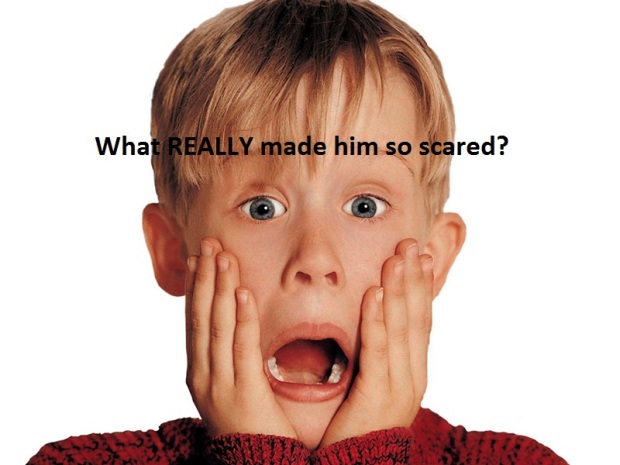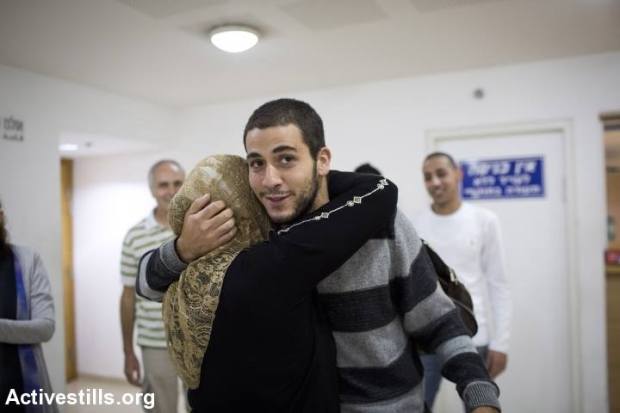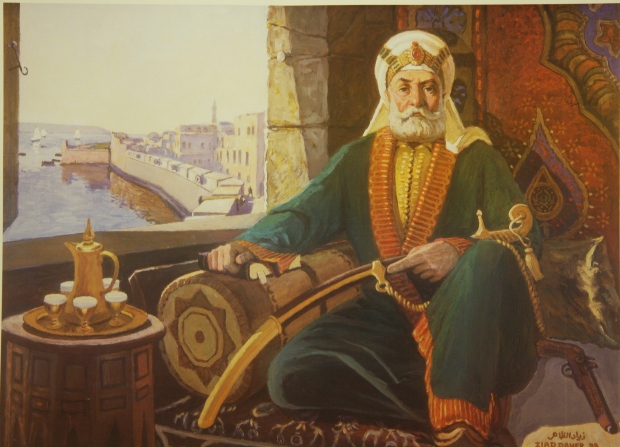
Nur, Christmas 1993
They were four kids from Halisa, this struggling poor neighbourhood on the slopes of Mount Carmel, on the eastern entrance to Haifa. Nur was the biggest of the four. At the time that this story happened, in the spring of 1994, he was about six and a half. Yes, half a year is important at such an age. He was already going to school, a first grade student at the Carmelite school located between Wadi Nisnas and Downtown Haifa.
The other 3 kids were still going to kindergarten, in the Sacred Heart monastery. Hadaf and Yasar were the son and daughter of our good friends and neighbours. Adam, my other son, was not yet three years old, the youngest in this small bunch.
The school and the kindergarten were some 3 kilometers away (by air) and, naturally, we had to drive the kids there every morning and bring them back after school hours. I used to take the four of them in the morning on my way to work. Osama, the father of Hadaf and Yisar, had a more flexible job and would take them back home.
Once Osama came to our house and informed me that on the next day he will be busy and would not be able to take the kids from school.
On the next day I went out of work, initially heading for the Carmelite school to pick up Nur. When I arrived there children were already pouring in a steady stream to the street, some of them finding their parents waiting, others, some of the older kids, walking home or going to catch a bus.
I waited patiently, but there was no sign of Nur. As the stream of kids dried out, I went into the schoolyard and looked around, hoping to find him playing there. But there were very few kids at the yard and Nur wasn’t there. I entered the school’s office and asked about Nur. Yes, he was at school but probably went home… Nobody really noticed.

Hadaf, Yasar, Adam, Fady, Luay – Probably 4 years later…
Going out I looked in the small streets around the school but there was no hint of where Nur might be. I decided to go and pick the other three kids from the kindergarten, some 500 meters away, before I will think of new ways to look for Nur.
I parked the car in front of the kindergarten. There were no kids waiting at the entrance, as most of the kids have already gone. I went in to take my three kids, but they were not there either. Finally one of the teachers told me: I think their brother came and took them.
It could seem crazy, a six and a half years old kid taking with him three small kids from the kindergarten in the middle of downtown Haifa, into the messy streets busy with traffic, far from home… But, to say the truth, for me this was a big relief after the daunting worries of the previous hour. So, Nur was not kidnapped after all. The four kids will not easily disappear together.

Nur & Adam, Christmas 1993
I started driving along the road home, but there is more than one way you can drive to Halisa and even more ways to walk. If I remember well I didn’t find them until they came home.
Nur explained that he heard Osama saying that he was busy and will not take the kids. So he simply did what he had to do.
When I think again and again about this day, one of the most frightening in my life, sometimes I think it might show how little trust Nur had toward his parents. But apparently he didn’t think he was abandoned or that there was anything unnatural in his parents being busy or him taking the kids walking home. He used to be a responsible kid, the biggest one in the bunch.




